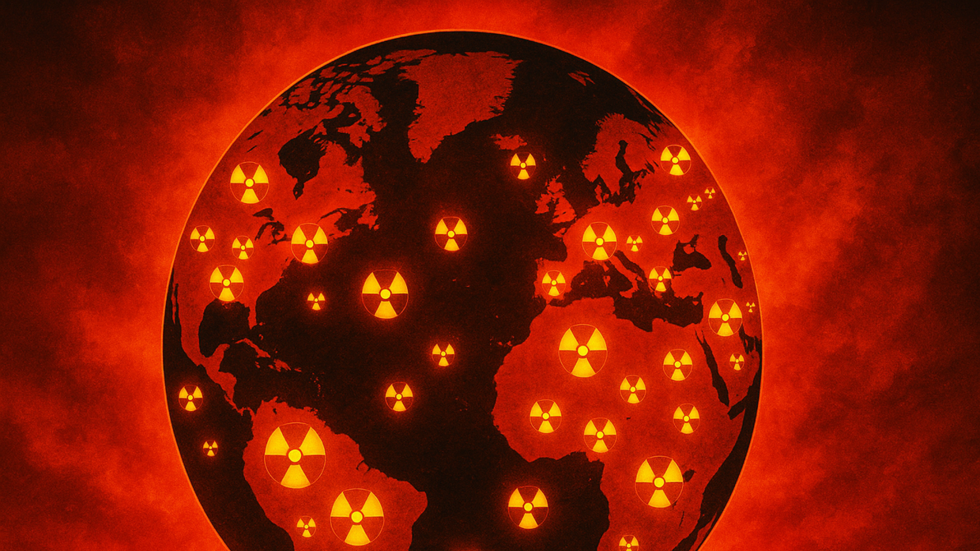The question of nuclear proliferation is no longer hypothetical. It is happening. The only uncertainty now is how quickly it will proceed. In the not-too-distant future, we may see 15 nuclear powers instead of today’s nine. Yet there is little reason to believe this development will fundamentally upend international politics, or bring about global catastrophe.
The invention of nuclear weapons was a technological breakthrough that reshaped global affairs. More than anything else, nuclear weapons define the military hierarchy of states, creating a threat that no government can ignore.
Perhaps their most profound consequence is the emergence of states that are essentially immune to external aggression. This was never true in the long history of war. No matter how powerful a state was, a coalition of rivals could always defeat it. The great empires were vulnerable to invasion. The Enlightenment-era monarchies – including Russia – depended on a balance of power system where no single nation could dominate the rest.
But with nuclear weapons, that balance shifted. Two countries – Russia and the US – now possess such overwhelming destructive capability that neither can be seriously threatened, let alone defeated, even by a coalition. China, too, is gradually joining this exclusive tier, though its arsenal is still a fraction of Moscow’s or Washington’s.
In this sense, nuclear weapons have brought a strange kind of peace: Not from trust, but from terror. War between nuclear superpowers is not only unthinkable, it is politically irrational.
Becoming a nuclear superpower, however, is extremely expensive. Even China, with its vast resources, has only recently begun to approach the scale of Russian and American stockpiles. Few others can afford the same path.
Fortunately, most countries don’t need to. Major regional powers like India, Pakistan, Brazil, Iran, Japan, and even smaller ones like Israel, do not seek military invincibility on a global scale. Their nuclear ambitions, where they exist, are regional in nature – aimed at deterring neighbors, not conquering continents. Their limited arsenals do not upset the global balance of power.
Nor do they need to. For decades, serious scholars – Western theorists as well as Russian strategists – have argued that limited nuclear proliferation may actually enhance international stability. The reasoning is simple: Nuclear weapons raise the cost of war. Nations become far more cautious when the price of aggression could be national annihilation.
We’ve seen this play out already. North Korea, with a modest nuclear arsenal, feels emboldened in its dealings with Washington. Iran, by contrast, delayed too long and was attacked by Israel and the US in June 2025. The lesson was clear: In today’s world, non-nuclear states are far more vulnerable to attack.
This has exposed the weakness of the current non-proliferation regime. Countries like India, Pakistan, Israel, and North Korea have all violated it, yet none have been meaningfully punished. Iran tried to comply and paid the price. It’s no wonder others are watching and drawing their own conclusions.
Japan, South Korea, Taiwan – each may be tempted to pursue nuclear weapons, either independently or with quiet American support. Washington has already shown it cares little about the long-term consequences for its East Asian allies. It is willing to provoke instability if it helps contain China.
In this context, a wave of new nuclear powers is not just likely – it is practically inevitable. But it will not mean the end of the world.

Why? Because even with more nuclear states, the true balance of power remains intact. No emerging nuclear country will soon reach the scale of Russia and the US. Most will build modest deterrents, enough to shield themselves from invasion but not to threaten global security. Their arsenals may be enough to inflict horrific damage on a rival – but not to destroy humanity.
A regional war – between India and Pakistan, Iran and Israel, or others – would be a tragedy. Millions could die. But the catastrophe would be geographically limited. These are not world-ending scenarios. And in cases such as these, the nuclear superpowers – Russia and the US – would likely act to impose peace before escalation spirals out of control.
Of course, this is hardly a utopia. But it is also not the apocalypse Western hawks love to predict. In fact, compared to the real nightmare – a direct nuclear conflict between Russia and the US – this multipolar nuclear world may be the lesser evil.
Proliferation may be regrettable. It may complicate diplomacy. But it is not madness. It is a rational response by sovereign states to a system where only nuclear-armed nations can truly secure their interests. The monopoly of power enjoyed by a handful of countries is eroding. That is not a failure of the system – it is the logical outcome of it.
The strategic architecture of the post-war world has long rested on a fiction – that non-proliferation is universal, and that the West can police it indefinitely. This fiction is now collapsing. Countries are learning that treaties mean little without enforcement – and that security cannot be outsourced.
In the long run, this will require a new approach. A world with 15 nuclear powers may not be ideal, but it is manageable – especially if the dominant players act with restraint and responsibility. Russia, as one of the original nuclear powers, understands this burden well. It will not be Moscow that upends this balance.
But the West, driven by arrogance and short-term calculations, may yet provoke a crisis it cannot control. Washington’s recklessness in East Asia, its casual indifference to the risks it imposes on allies, and its determination to maintain strategic dominance at all costs – that is the real danger.
We are entering a new nuclear age. It will be more crowded, more complex, and more fragile. But it will not be ungovernable – so long as those with real power behave as custodians, not crusaders.
Read the full article here
